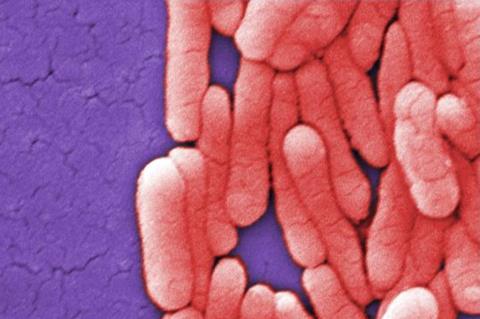A new study published in the journal Cell Reports Medicine links exposure to salmonella bacteria to colon cancer risk.
The researchers, including a team led by Jun Sun from the University of Illinois Chicago, studied human colon cancer tissue samples and animal models and found that exposure to salmonella was linked with colon cancers that developed earlier and grew larger.
The study authors first looked at data from a Netherlands-based retrospective study of colon cancer patients that found tissue samples taken during routine colon cancer surgery with salmonella antibodies tended to be from people who had worse colon cancer outcomes.

Using salmonella strains isolated from these tissue samples, Sun and her US-based team studied mice with colon cancer that had been exposed to the bacteria. They observed accelerated tumour growth and larger tumours in mice with salmonella exposure. They also saw that there was increased salmonella translocated to the tumours.
Hijacker
“During infection, salmonella hijacks essential host signaling pathways, and these molecular manipulations may cause oncogenic transformation. The current study tells us that more research is needed into the connection between salmonella exposure and colon cancer risk in the USA, and that simply by practicing safe food preparation, we can potentially help to protect ourselves,” said Sun, UIC professor of medicine.
Sun’s collaborators in the Netherlands also studied the bacteria in vitro. They combined human cancer cells and pre-cancer cells with the salmonella strain in the lab and measured any growth or changes in the tumour. They saw that even one infection caused transformation and that each salmonella infection exponentially increased the rate of cell transformation.
“The mouse and tissue culture experiments show that salmonella infection had a chronic effect to accelerate tumor growth,” said Sun, who also is a member of the University of Illinois Cancer Center at UIC. “This evidence tells us that we need to look closer at salmonella exposure as an environmental risk factor for chronic diseases, such as colon cancer.”
Leiden University Medical Center, the National Institute for Public Health and the Environment, and Utrecht University, all in the Netherlands, collaborated on this study.







No comments yet